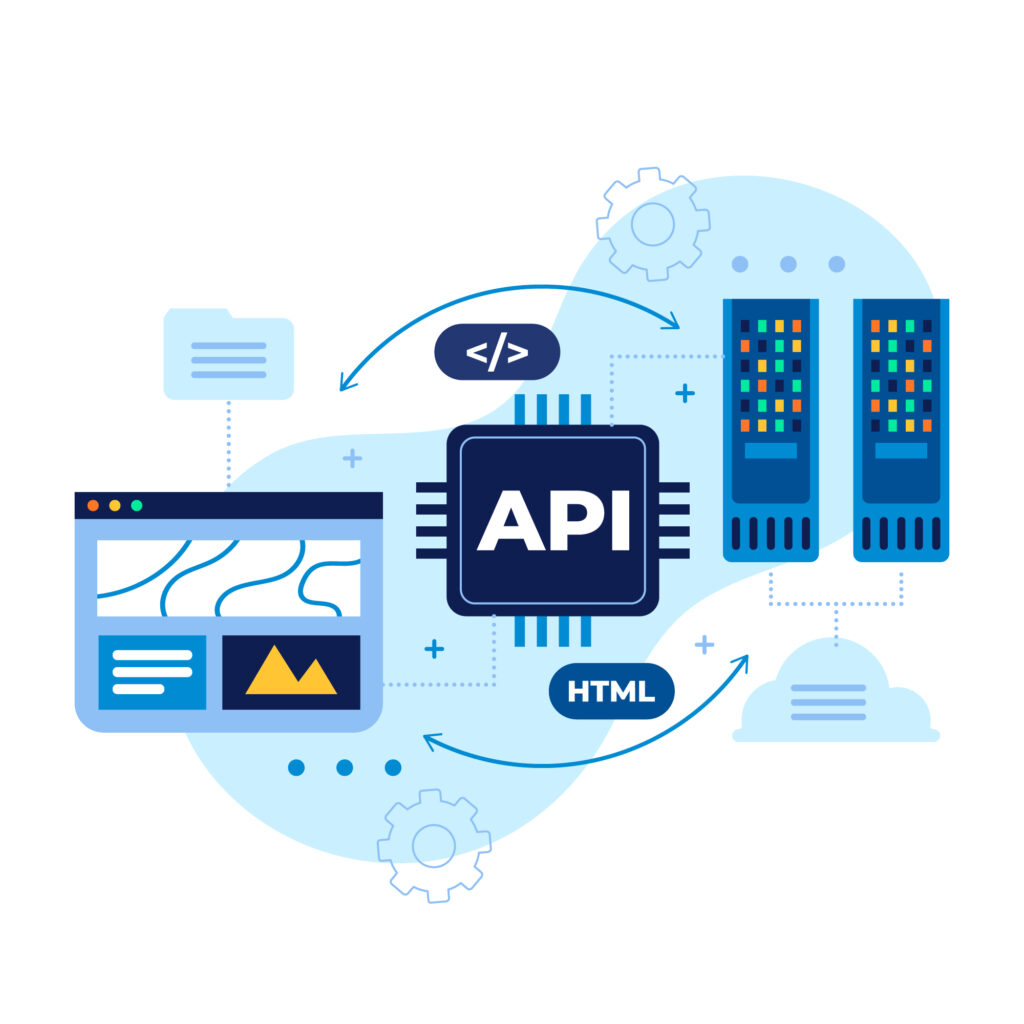In the current digital era, companies are using technology more and more to improve services and optimize operations, and custom API connection is essential to this. Modern software development requires the use of Application Programming Interfaces (APIs), which are essential technologies that facilitate data interchange and communication between disparate software systems. Businesses can improve user experience and operational efficiency by integrating APIs. Custom API integration enables specialized interactions, optimizing performance and delivering features that correspond closely with unique business demands.
What Does API Stand for Integration?
API stands for Application Programming Interface. It is a set of protocols and tools that enable different software applications to interact with each other. In the context of integration, APIs act as bridges that connect disparate systems, allowing them to share data and functionalities. This integration is essential for creating cohesive and efficient business processes, as it enables various applications to work together seamlessly.
Types of APIs
There are several types of APIs, each serving different purposes and use cases. The most common types include:
- REST API (Representational State Transfer): RESTful APIs are widely used for their simplicity and scalability. They operate over HTTP and are designed to be stateless, making them suitable for web services that require high performance and reliability.
- SOAP API (Simple Object Access Protocol): SOAP APIs are known for their robustness and security features. They use XML for messaging and provide a more standardized protocol compared to REST. SOAP is often used in enterprise environments where complex transactions and high security are required.
- GraphQL API: GraphQL APIs offer a flexible and efficient approach to data retrieval. Unlike REST, which exposes multiple endpoints, GraphQL allows clients to request specific data from a single endpoint, reducing the amount of data transferred and improving performance.

Integrate WordPress with a Mobile Application
Integrating WordPress with a mobile application can provide numerous benefits for businesses. WordPress, being a popular content management system, can serve as the backend for mobile apps, allowing for efficient content management and updates. This integration can enhance user engagement by delivering real-time content and notifications to mobile users. Additionally, it simplifies content creation and management, as changes made in WordPress are automatically reflected in the mobile application.
2. Shopping Cart
The shopping cart is the heart of the eCommerce experience. It’s where customers review their selections, make final adjustments, and proceed to checkout. A well-designed shopping cart should be easy to use, informative, and transparent.
Benefits:
- Streamlined content management
- Real-time content updates
- Improved user engagement
Integrate Laravel with a Mobile Application
Laravel is a powerful PHP framework known for its elegant syntax and robust features. Integrating Laravel with a mobile application can enhance functionality and provide a seamless user experience. Laravel’s capabilities, such as database management, routing, and authentication, can be leveraged to build sophisticated backend services for mobile apps.
Advantages:
- Enhanced backend functionality
- Improved performance and security
- Seamless user experience across platforms
The Top Benefits of Using API Integration Platforms for Business Applications
Custom API integration platforms offer several advantages for businesses:
- Enhanced Flexibility: Custom APIs can be tailored to meet specific business needs, providing a more flexible and adaptable solution compared to off-the-shelf APIs.
- Improved Efficiency: By automating data exchange and process workflows, API integration can significantly improve operational efficiency and reduce manual intervention.
- Scalability: Custom APIs can be designed to scale with your business, accommodating growth and changes in business requirements.
- Better Data Security: Custom APIs can be designed with robust security features to protect sensitive data and ensure compliance with regulatory requirements.
- Increased Innovation: Custom API integration enables businesses to leverage new technologies and integrate with emerging platforms, fostering innovation and staying competitive.
Conclusion
Custom API integration is a powerful tool for enhancing business applications and driving operational efficiency. By understanding what APIs stand for and the different types available, businesses can make informed decisions about integrating APIs into their systems. Whether integrating WordPress or Laravel with mobile applications, or utilizing API integration platforms, the benefits are clear. Custom API integration not only streamlines processes but also offers greater flexibility, security, and scalability. Embracing these technologies can lead to significant improvements in business performance and user satisfaction.
